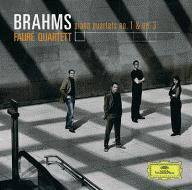Developing Themes in Classical Music
In Schoenberg's book on composition he states a melody needs to develop in order for it to maintain interest and yet, too much development too soon leaves the listener wondering at the connection. So, it is possible to alter the intervals, but retain the rhythm. Or augment the rhythm with passing notes, but keep the original notes. But to do both would create a new melodic idea too far removed from the original idea. However in 1975 he said, "In fact...I believed that now music could renounce motivic features and remain coherent and comprehensible nevertheless." So, maybe music needs themes which develop and maybe it doesn't.
Webern has a piece (I don't remember which one off hand) which has a two note motive. Now, I don't really consider this a motive, but analysts suggest this is the core of the piece. The motive is then altered at the next iteration by adjusting the interval. As the pieces progresses into the development section (sonata form) this alteration continues to be skewed until the piece ends. The overall piece is short, and an excellent example of the sonata form in its most condensed form. However, I can't really "hear" the motive or the development of it - but people who love Webern say it's there.
In Bernstein's Young Peoples Concerts he discusses how Beethoven's Fifth Symphony develops from a basic motive into a flowering of music. He does the same with the Eroica Symphony. However, all of these developments are linear, as they are in Webern's music.
Benjamin Britten wrote his Cello Sonata as a theme and variations, but in reverse order. The core theme is not actually presented in its pure form until the end of the piece, with the most convoluted form actually presented at the outset of the music. This reverse of the process means the listener gets to hear the developed music before the original idea, so, by the time we get to the original idea, we have a different concept as to what that idea really is - a remarkable work. It might be suggested this piece is still linear, but in a very different concept than Beethoven or Webern.
Allan Kozinn reviewed the New Juilliard Ensemble on November 2005 with a series of pieces where the themes were touching on permanence and transience. He goes on to describe this as an explanation of any music. The piece by Agustín Fernández, "Peregrine" (1994) seemed to constantly shifting the combinations of timbre and shape. Listening to the piece on MySpace I would say the development is anything but linear. However, when the piece is finished, there are definite connections between the various elements.
When I am composing a piece, I generally start with a core idea. From that core I attempt to create a variety of "variations" or developments from which to choose. The variations are then placed to move from one to another, but not necessarily in a linear fashion. For example, the first movement of the symphony has only one motive. All the themes are based on that one motive. One is inverted, one is in retrograde and one is inverted and in retrograde (standard development techniques). Each of these themes is then further altered to remove some of the notes of the basic motive so only a portion of the motive is heard. What this creates is four distinct themes, but all based on a singular idea. Because the original motive is not mutated from it original form, step by step into each variation, I can understand why the themes might be considered unique ideas, too remote for the listener to grasp.
However, I attempted with the fifth movement, to reverse this process - to show the migration of the motives by manipulating them from their original form into the various alternate forms. Because I was including the four themes of the first four movements, the mutations moved from one movement theme into another (attempting) to show the relationship between all of the themes in the symphony. So, like Britten, I presented all the themes in their complexity, and then brought the listener back to the core in the final movement.
The symphony is 50 minutes in length and perhaps this is just too long for listeners to grasp. Perhaps this was maybe overreaching for a first symphony. If the overall piece had been 5 minutes or even 15 minutes it might be easier for the listeners to grasp the relationship. Hmmmmm….. Not sure how to resolve that one as I'm not keen on writing a 5 minute symphony.
I am also not interested in linear development. Classical Music has moved from linear movement to non-linear as is evidenced by numerous compositions which don't even have a set order of performance, or are aleatoric. So, for now, there is no answer - but then again, composition is a process and I intend to continue to develop as a composer. Perhaps in the future I will learn to develop my music in such a way that listeners can hear the development of the themes in a non-linear way.
Or perhaps I need to write several more and estabilish it as my style...
Comments
Maybe you have done what you abhor, and written music that can only be understood while looking at the score! Yikes!
Somehow, I doubt that. I think rather that you should prepare for these types of comments throughout your career. Some people will love your music instantly. Some people will be ambivilent. Some people will hate it. It is the nature of the art form!
Remember: Mozart wrote 'Too many notes', and Beethoven was a 'madman'.